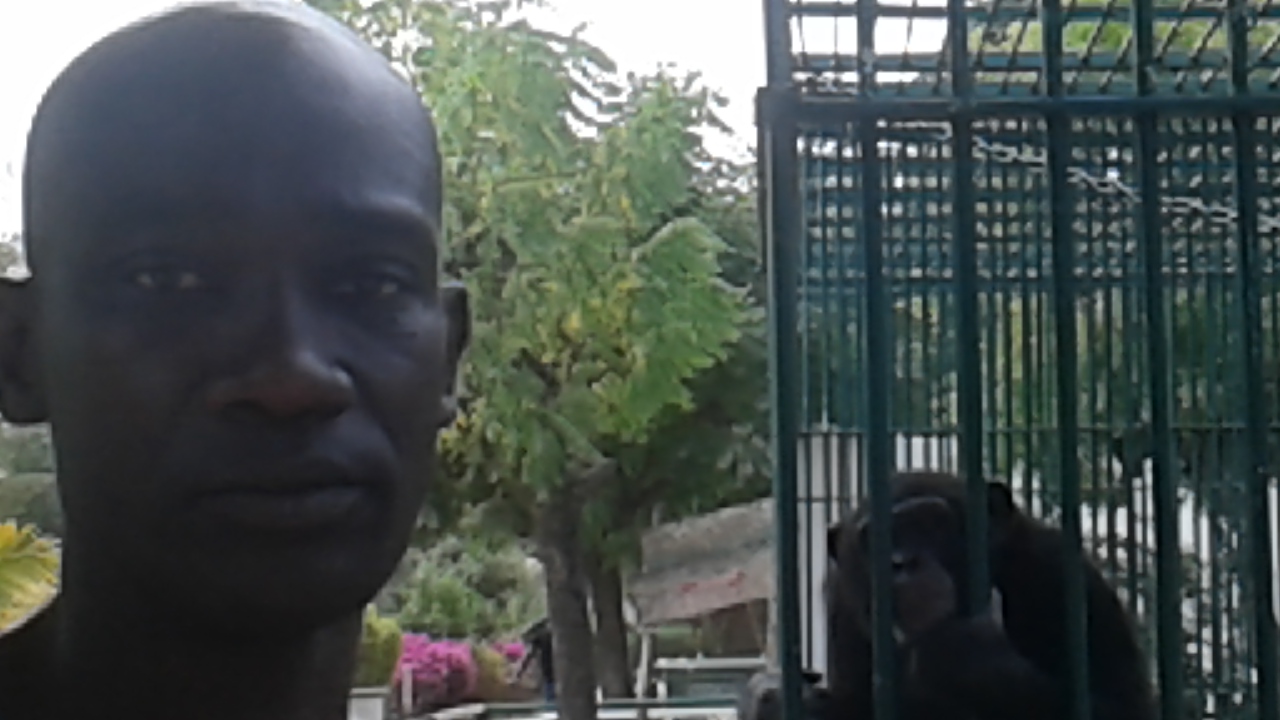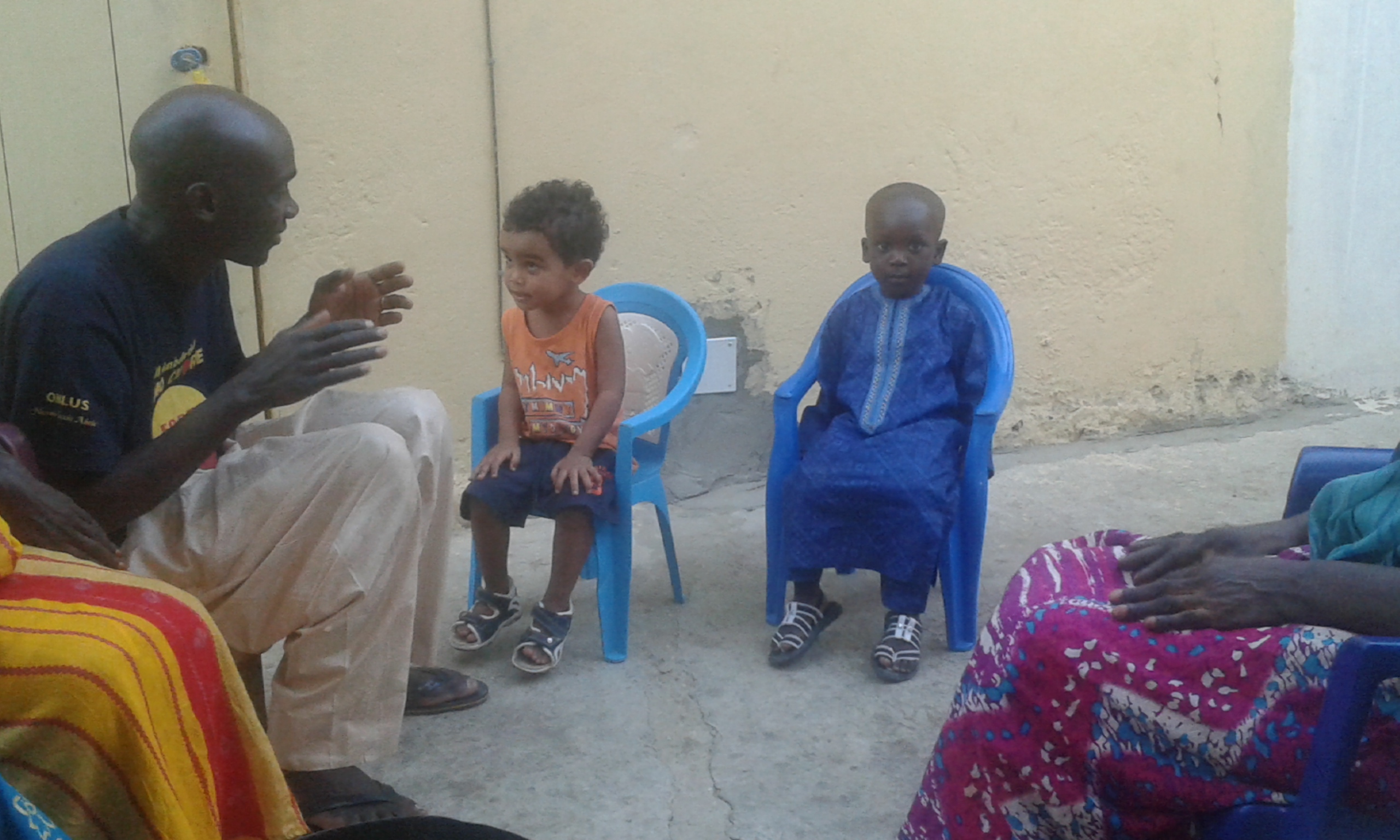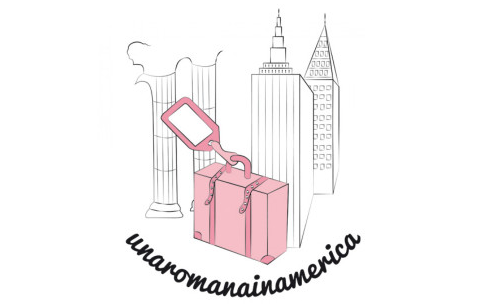“Nessun sentiero porta a un albero senza frutto”
(Proverbio senegalese)
Da ragazzina non mi sono mai posta il problema della religione o della nazionalità dei miei compagni, per me erano tutti cattolici e tutti italiani. Col passare degli anni il mondo è cambiato e ho avuto la possibilità di vedere questo cambiamento con i miei stessi occhi, di viverlo sulla mia pelle. Ho visto le differenze, che per alcuni sono state motivo di confronto e crescita, mentre per altri disprezzo e paura. Quando sono arrivata in America, mi sono ritrovata dall’altra parte: ero io la straniera. Vestivo in modo differente, non parlavo bene la lingua, ero chiaramente un’outsider. Col tempo ho iniziato a integrarmi, nonostante vesta sempre a modo mio e mantenga il mio accento. Tutt’oggi svolgo, per mia scelta, lo stesso lavoro che molti immigrati si sono ritrovati a fare. Ho colleghi che nel loro Paese avevano studiato, laureati proprio come me. E anche come molti degli stranieri che sono arrivati in Italia. Nella mia esperienza ho imparato che non si può giudicare un intero popolo da pochi esempi. Esiste la gente e poi ci sono le persone. È quindi un vero piacere ospitare nel blog, grazie a Sabrina che è stata da poco a casa e ha avuto modo d’intervistarlo, un senegalese immigrato proprio nella mia città, riprendendo finalmente in questo modo la rubrica “Dal mondo a Roma”.
Cominciamo dalle presentazioni, da chi sei. E finiamo con una domanda, già difficile. Dal Senegal all’ Italia.. un passo duro e sofferto o una splendida avventura?
Ciao sono El Hadji e sono nato in Senegal. Un passo duro, direi, quando tu lasci la tua famiglia dietro c’ è la sofferenza più grande della tua vita, non è mai facile lasciare il proprio paese.

Ormai sono anni che abiti a Roma. Cosa ne pensi, è come te l’aspettavi? In quali altre realtà italiane hai abitato? E quali differenze hai riscontrato .. insomma gli italiani sono italiani ovunque?
Roma è bella perché è multietnica, la gente sorride, è un museo aperto. Mi aspettavo un lavoro ed è stata dura.. mi aspettavo una vita migliore. Ho abitato in precedenza a Legnano (in provincia di Milano) Santa Croce (in provincia di Pisa) e a Pescara. A Roma sono più sorridenti e aperti di Milano, anche a Pescara sono molto accoglienti, forse perché è vicino a Roma.. gli italiani sono italiani, dipende dalle persone che incontri; un romano può dirti “Dai vieni a prendere un caffè con me…” ma un altro ti può dire” Vai a casa tua ….. ”


Ti sei integrato bene, se si pensa al fatto che hai un lavoro, una moglie italiana e un figlio nato a Roma. A proposito di questo, vogliamo chiederti una cosa. L’abitudine tutta italiana di tua moglie che proprio “non sopporti” e quella senegalese che le hai insegnato e che lei ama di più.
Le donne qui in Italia pensano troppo, invece a volte fa bene lasciare tutto nelle mani di Dio. Noi diciamo “Inchalla!”, che vuol dire “se Dio vuole”, perché bisogna avere speranza. Più che un’abitudine sono delle caratteristiche africane che mia moglie Simona ha più di me, tipo il ballo con i tamburi che lei ama tanto, ed è anche brava, la cucina senegalese che a lei piace mangiare e cucinare.

In che lingua parli a tuo figlio, e quali sono le tradizioni del tuo paese che tu vorresti lui facesse sue? Moussa è italiano o senegalese, secondo te?
Moussa è italiano perché fa le cose italiane, gli piace la cucina italiana (soprattutto la pasta e la pizza), è giusto, è nato qua, ma ha il sangue senegalese! E’ sorridente ,gli piace ballare, adora la musica e ama suonare le percussioni. Gli parlo italiano, ogni tanto senegalese e a volte un po’ in francese . Vorrei che imparasse il valore della solidarietà, ad amare la famiglia e il prossimo, la cultura dello stare insieme e della comunione, della condivisione.


Parlaci del Senegal, del luogo in cui sei nato. Ci torni spesso? Cosa ti manca di casa tua, cosa invece sei contento di esserti lasciato alle spalle?
Sono nato a Tivaouane, nella regione di Thies a 70 km della capitale Dakar dove ho studiato per anni. E’ un paese piccolo, le persone sono povere ma non puoi essere povero e anche triste quindi le persone sono sempre sorridenti E’ un paese dove c’ è sempre festa per dimenticare insieme questa povertà . Ma in Senegal non c’è solo la povertà, ci sono altre cose belle.. c’è molta unione, anche tra religioni diverse ci rispettiamo e quando ci sono le feste ci invitiamo tra di noi! Nel calendario senegalese, infatti, ci sono tante feste e ci invitiamo nelle case per mangiare insieme i piatti tradizionali delle festività. Mi manca casa mia, tutta, la famiglia, gli amici, la mia città ; la gente che si saluta per strada dandosi la mano, la mia religione. La religione musulmana, anche se la pratico in Moschea, a Roma è “diversa” perché in Senegal la religione è molto importante e si vive in famiglia, nelle strade, si prega sempre insieme e gli anziani ti danno la benedizione per proteggerti.

Parliamo di sogni .. dove ti piacerebbe far crescere tuo figlio, pensi che Roma sia il posto giusto? Tua moglie si trasferirebbe in Senegal? E tu, torneresti mai a casa?
Mi piacerebbe far crescere Moussa in un paese che ci può dare un futuro migliore, un lavoro, dove lui possa studiare ed avere dei diritti. Pensiamo spesso di andar via e abbiamo intenzione di farlo, anche se Roma ci mancherà tanto, ma purtroppo non c’è più molto in Italia. Mia moglie, sì, verrebbe in Senegal e anche se la vita lì è difficile ci sono tante cose da fare perché è un paese che sta crescendo. Sono sicuro che se Simona rimanesse qualche mese in Senegal imparerebbe subito la lingua . Quanto a me, sì, ci tornerei a casa, è normale, c’è la mia famiglia.. è dove sono nato.

La domanda sulla lingua è d’obbligo. Tu parli wolof .. pensi che un italiano adulto possa impiegarci un po’ meno di mille anni a impararlo? Insomma, abbiamo speranze noi?
Sì, si può parlare, conosco italiani che parlano wolof meglio dei senegalesi e donne italiane che cucinano senegalese meglio delle donne senegalesi, ma anche amiche senegalesi che cucinano benissimo la lasagna!!! Insomma, tutto si può fare quando si vuole…
Ultima domanda, ci teniamo. Ti piace la pastasciutta?
Si, mi piace, prima no ma adesso si. Lo ammetto: la pasta mi piace!!
Ringraziamo El Hadji per aver condiviso con noi la sua storia e auguriamo a lui e alla sua famiglia un in bocca al lupo per un futuro migliore, qualunque sia la destinazione, se mai sarà un’altra da Roma. “Inchalla!”
A presto,
Alessandra (e Sabrina)
“No trail leads to a fruitless tree”
( Senegalese proverb )
I never paid attention to my friends’ nationalities and religious backgrounds when I was younger. To me everyone was Catholic and Italian. As I grew up, however, I witnessed the world changing identity before my very eyes. Suddenly reality was tangibly different, some accepted it and learned from it, others hated it and became frightened by it.
When I first arrived in America, I was on the other side of the fence. I was the foreigner here. I dressed differently, I didn’t speak the language. I felt like an outsider. Sort of an underdog, if you will. Slowly but surely I acquired a place in the new society even though I still dressed differently and kept my Italian accent. I chose to stick with the first job I got when I moved here, the only job many immigrants were forced to take as nothing else was available to them. My colleagues gained college education in their own countries, just like I did. The same goes for many foreigners who moved to Italy.
Life taught me that we can’t judge an entire country by a few wrong examples. People who do good and people who do evil are everywhere. That’s why it’s a pleasure to invite – with Sabrina’s help who was home a few days ago and had the chance to interview him – a guy from Senegal who immigrated to Rome, to my blog. Thank you Sabrina for bringing the column ” from the world to Rome “back to life!!!
Hi there, go ahead and introduce yourself first, then answer my first, kind of difficult question, please. From Senegal to Rome: a difficult transition or the beginning of a wonderful adventure?
Hi! My name is El Hadji and I come from Senegal.
A difficult transition is my answer. Leaving my family and my country behind was the hardest, most painful thing I have ever had to go through in my life.
You’ve been living in Rome for a few years. What do you think about the city? Did it meet your expectations? In which other Italian reality did you live? Did you notice any difference or do you think Italians are all the same regardless of where they live?
Rome is beautiful because it’s multiethnic. It’s an open museum, everyone smiles.
I was expecting to get a job right away, but it’s been hard. I was wishing and looking forward to a better life. I lived in Legnano before ( province of Milan ), Santa Croce ( province of Pisa ) and Pescara. I find Romans to be more outgoing and happier than the Milanese citizens. People from Pescara are friendly as well. Perhaps because Pescara is close to Rome? Italians are Italians no matter where you go. It depends on who you meet. A Roman can invite you for coffee while another will have no problems telling you to go back to your country.
You have integrated fairly well. You have a job, an Italian wife and your son was born in Rome. Let us ask you: what’s a bad Italian habit your wife picked up that you can’t stand and which Senegalese one does she appreciate so much to the point where she made it hers?
Italian women think too much. Sometimes it would be better to leave things up to God. In Senegal we say ” Inchalla ” which means ” God willing ” because we can never lose hope.
More than habits I would say my wife is into a few African traditions more than I am like dancing to the beat of the drums. She’s really good at it too. She also loves to eat and cook Senegalese dishes.
What language do you speak with your son? Which Senegalese values would you love to pass onto him? Do you think Moussa is Italian or Senegalese?
Moussa is Italian because he acts and does everything in Italian. He loves Italian food ( he’s a big fan of pasta and pizza ). I mean, he was born here, and I’m ok with that. But his blood is totally Senegalese; he always has a smile on his face, he enjoys music, he loves to dance and he likes to play the drums. I speak Italian to with, sometimes Senegalese or French, it depends. I would love to teach him the value of solidarity and the importance of family and sharing. I want him to be a caring human being and to respect others.
Tell us about Senegal, your home country. Do you visit often? What do you miss the most and the least about it?
I was born in Tivaouane, in the region of Thiès, about 70 km away from the capital Dakar.
It’s a small town with a high poverty rate. But because being poor and being sad is not an option, everyone smiles. We fight poverty by partying a lot. Celebrating helps keeping our spirits high. Senegal is not just a poor country, though. There’s a lot of beauty there. There’s unity between us, for instance. We respect each other’s religion and whenever there’s a party, everyone’s invited. Senegal has a calendar full of festivities and we love to invite one another and gather around the table enjoying traditional dishes typical of the recurrence we’re celebrating.
I miss my country, I miss everything about it, I miss my family, my friends, my hometown. I miss saying hi with a handshake, I miss my religion. Even though I go to the Mosque in Rome for Muslim worship, the Islamic religion is not the same here. Religion is extremely important in Senegal, we pray with the family, in the streets, everywhere and at anytime. We love our elderly because they bless us to protect us from bad things.
Let’s talk about dreams: where would you like to raise your son? Do you think Rome is a good place to raise a family? Would your wife move to Senegal? And would you like to go back home at some point?
I would like to raise Moussa in a place that can give us a better future, an honest job, an
opportunity for him to pursue advanced education and have rights like anyone else.
We often discuss leaving, and, even though we’re going to miss Rome, it’s going to be inevitable. Unfortunately Italy doesn’t have much to offer anymore.
Yes, my wife would move to Senegal. Life is hard there, but there’s a lot to do, it’s a growing country so we shall see. I’m sure Simona would learn the language in no time.
As far as I’m concerned, of course I would move back there. My family is there, my whole life is still there. It’s where I was born.
I just have to ask a question about your language. You speak Wolof. Do you think Italians have a chance to learn Wolof in a little less than one thousand years? Is there any hope for us?
Of course there is! I know Italians who speak Wolof better than many people from Senegal and many Italian women who cook Senegalese dishes better than some Senegalese women I know. To be fair I know plenty of Senegalese women who can cook great lasagna. What I’m trying to say is, where there’s a will, there’s a way!
Last question, it’s important for us to know: do you like pasta?
I do, I really do. I didn’t at first but now I actually like pasta a lot.
We want to thank El Hadji for sharing his story with us and we take this opportunity to wish him andhis family all the best for a bright future in their new home, should they decide to leave Rome.
“Inchalla”
So long,
Alessandra ( and Sabrina )


È un piacere conoscere questa famiglia, la loro gioia di vivere è contagiosa, e ci fa rendere conto che è proprio vero… Noi pensiamo troppo.
Ciao Chiara! Hai ragione, un invito stupendo alla felicità e al sottrarsi a quello stress mentale che forse ci condiziona troppo la vita.. che ne pensi, non è meglio, come dice El hadji, lasciarsi un po’ più andare? Il bello, forse, sta proprio tutto li.. grazie per essere passata da queste parti, quando vuoi siamo sempre qui..!!